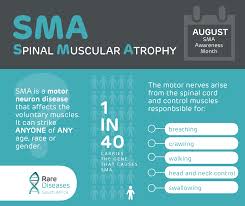World Bank points out myriad issues in healthcare

The World Bank has committed to giving Bangladesh $400 million for implementing the next five-year plan for the health sector, which is estimated to cost around $9 billion.
The government expects $2.3 billion of it to come from multilateral and bilateral partners, including the World Bank (WB), the Asian Development Bank (ADB), and the Japan International Cooperation Agency (JICA).
According to finance ministry officials, negotiations with the WB were completed on Monday, and the first round of talks with the ADB and JICA also concluded.
Officials of the Economic Relations Division of the finance ministry said they would soon finalise each development partner’s contribution to the plan. The government would foot the rest of the bill.
The plan, titled “Health, Nutrition, and Population Sector Development Programme (HNPSDP)”, is renewed every five years. The current plan is set to expire in June next year.
Experts said the existing budget for health is insufficient and that the sector has struggled to effectively use the funds allocated to it.
In recent review of the health sector, the WB said, “Bangladesh’s Health, Nutrition, and Population (HNP) sector faces numerous challenges, including maintaining immunisation coverage, improving child nutrition, enhancing the quality and reach of services, reducing socio-economic and regional disparities, addressing emerging health challenges, and strengthening financial management in the health sector.”
Syed Abdul Hamid, health economics professor at Dhaka University, said the current health system is ineffective, preventing people from truly benefiting from it.
“The main issue is that the sector lacks sufficient funding. We are unable to even fully utilise the limited funds. The money is often inefficiently spent,” he told The Daily Star, adding that corruption was a major issue too.
The World Bank has identified several challenges, including the slow pace of poverty reduction amid widening inequality, as well as malnutrition.
It noted that even though the maternal mortality ratio has declined to 143 per 1,00,000 live births, it is still more than double the global Sustainable Development Goal target of 70.
It observed that malnutrition threatens health outcomes and human capital. Nearly one in five women in Bangladesh is undernourished, one in three women aged 15-49 is anaemic, and one in six babies is born with a low birth weight, it said.
Improving the quality of antenatal care by including measures like multiple micronutrient supplementation could help prevent these poor outcomes, stated the WB.
Action is urgently needed as Bangladesh is also vulnerable to climate change, which threatens to exacerbate malnutrition and increase the risk of climate-sensitive non-communicable diseases, it said.
“Underlying these trends is a low-quality health system,” the WB said, adding that maternal health services suffer from poor quality, with issues like inadequate midwife support during childbirth, overuse of cesarean sections, and ineffective referral systems for timely care of complications.
The WB further mentioned that “primary healthcare facility performance is about 60 percent”, contributing to a high rate of preventable complications, increased reliance on more expensive and climate-intensive services, and a high out-of-pocket payment rate of 68.5 percent.
Prof Syed Abdul Hamid held the sector’s inefficient management accountable for these issues and suggested that recruitment for managerial positions needs to be overhauled, with rigorous training provided for both managers and supporting staff.
He advocated for block allocations for public hospitals to address emergency crises and recommended involving the private sector for repairs of machinery.
Hamid also called for streamlining the medicine supply chain, strengthening Essential Drug Company Ltd., increasing dedicated drug storage capacity, overhauling the rural healthcare sector by consolidating health and family planning services under a single framework, and establishing primary healthcare services in urban areas.
To reduce out-of-pocket expenses, he suggested lowering medicine consumption, regulating pharmacies, and controlling drug prices.
Source: The Daily Star | 13 November 2024 | Author: Rejaul Karim Byron, Md Abbas







